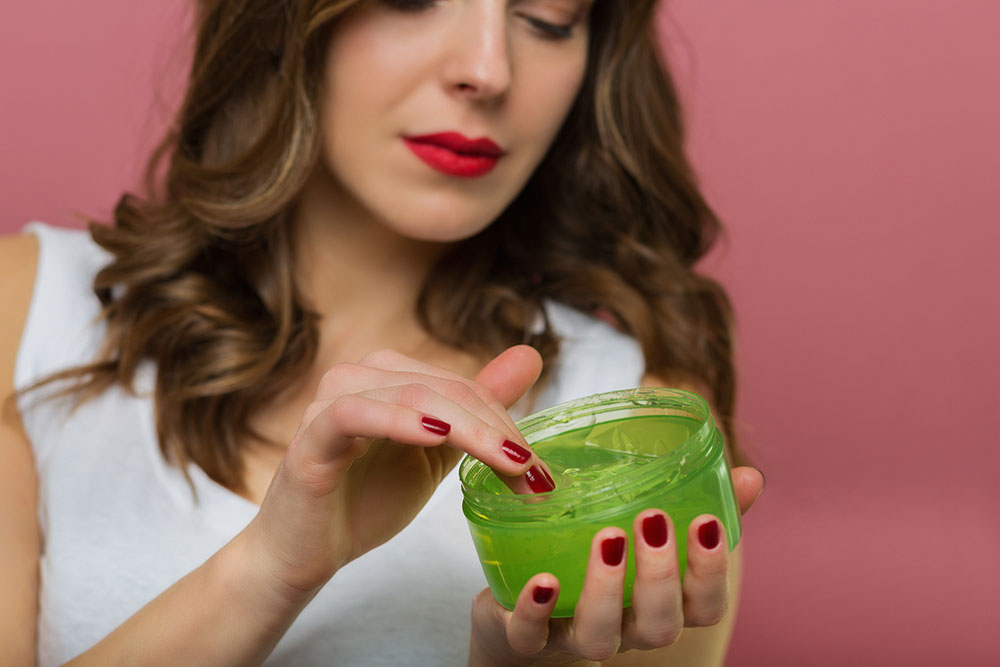Top 8 Natural Remedies for Hyperpigmentation
Hyperpigmentation is a condition that makes patches of skin become darker than the rest of it. This happens because the production of melanin, a type of pigment in the skin, is unusually high in those regions. Various factors can trigger such overproduction of melanin, including hormonal changes, age, and sun exposure. But, the condition is not usually harmful, and it can be managed with the help of a few natural and at-home remedies.

1. Aloe vera
The leaves of the aloe vera plant contain a gel-like substance, which offers many health benefits to the skin. For instance, this aloe vera gel can help relieve discomfort associated with several skin conditions. It can also reduce hyperpigmentation with the help of a compound called aloin, which has depigmenting properties. To get the most out of the plant, one can directly apply pure aloe vera gel onto the affected areas of the skin, leave it on for a few hours, and then rinse it off with warm water. One can even add pure aloe vera gel to their homemade face masks.
2. Green tea
Research suggests that green tea can help fight hyperpigmentation. According to a study, the main active ingredient in green tea, called EGCG, helps curb the process that increases pigmentation. Also, green tea is rich in antioxidants, which can fight free radical damage that negatively affects skin health. To use green tea to treat hyperpigmentation, one can soak a bag of green tea in boiling water for 4 minutes, remove it, let it cool, and then rub the bag on the affected areas.
3. Apple cider vinegar
One of the most common kitchen ingredients, apple cider vinegar (ACV), is also known to help in reducing pigmentation. Studies have shown that the acetic acid found in ACV helps depigment the skin to a certain extent. All one has to do is mix equal parts ACV and water and apply the diluted solution to the dark patches on the skin. One must leave this on for no longer than 2 to 3 minutes and then rinse it off with warm water. This process can be repeated twice a day. If one notices any irritation after applying the ACV solution, they should stop using this remedy.
4. Milk and yogurt
Dairy products like milk, yogurt, buttermilk, etc., all contain lactic acid, which is known to help lighten the skin. In fact, lactic acid is a common ingredient in store-bought face peels. To use milk or yogurt as a remedy for hyperpigmentation, one can directly apply it to the affected areas of the skin. Alternatively, one can soak a cotton ball in milk or yogurt and rub it on the darkened patches of their skin. Then, one can leave it on for a few minutes and rinse their skin. For better results, one should use this remedy twice a day.
5. Turmeric
This is another common kitchen ingredient that is believed to help reduce hyperpigmentation. One way to use it is to make a turmeric-based face mask. For this, one would need to combine small amounts of turmeric powder, honey, and Greek yogurt and apply it to the face. This mask can be left as is for 10 to 15 minutes before rinsing it off with water.
6. Red lentils
This kitchen ingredient can be used to make a face mask to reduce hyperpigmentation. Red lentils are rich in antioxidants, which can be extremely beneficial for the skin. Making a red lentil face mask can be time-consuming, but its benefits make the effort worth it. First, one would need to soak about 50 g of red lentils in a bowl of water overnight. The next morning, one can blend the soaked lentils until they combine to make a smooth paste. Then, one can apply this paste onto the darkened patches of the skin, leave it on for 15 to 20 minutes, and then rinse it off with cold water.
7. Pomegranate
This delicious fruit can also help improve skin health. But to treat hyperpigmentation specifically, one would need to crush a few of its seeds and apply them to the affected areas of the skin. One should wait for a few minutes before rinsing the seeds off. These crushed pomegranate seeds act as an exfoliating mask for the skin.
8. Tomato paste
Yet another easily available kitchen ingredient, tomato paste, has been found to be helpful against hyperpigmentation. Studies indicate that the compound called lycopene found in tomato paste protects the skin against photodamage, i.e., the harmful effects of prolonged sun exposure. To use tomato paste to treat hyperpigmentation, one can crush a tomato until it turns into a paste. To this paste, one can add some honey. Then, the mixture can be applied to the darkened areas of the skin. One can leave the paste on for about 15 minutes before rinsing it with water.
Before trying treatments and home remedies for hyperpigmentation, one should do a patch test to ensure they are not allergic to the ingredients.